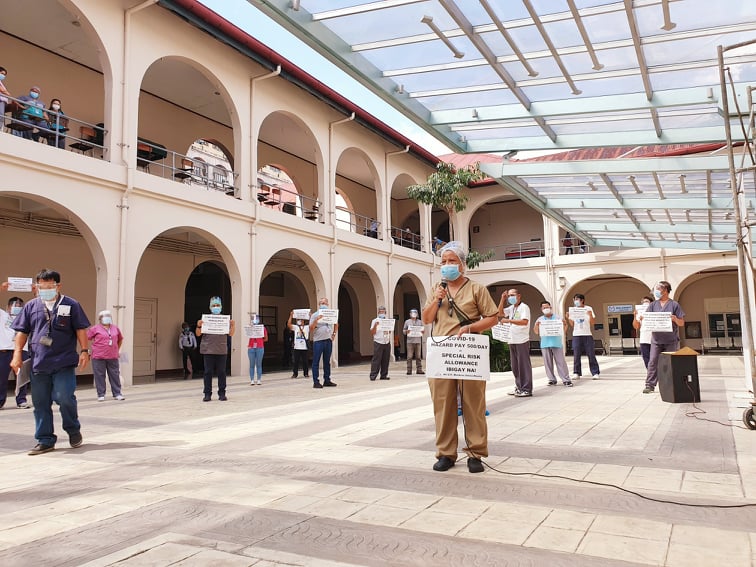
Civil society groups should further monitor how government agencies use budgets and deploy measures against the pandemic, especially since the country borrowed billions of dollars to fund these programs.
This was among the several recommendations of a newly-released study that examined the Asian Infrastructure Investment Bank’s COVID-19 loan to the Philippines. [Download study here.]
“Citizens must further unpack and analyze the performance of agencies in implementation of critical COVID-19 response measures on health, social protection, and economic relief for vulnerable groups,” said the study entitled “A Scoping Study on the Asian Infrastructure Investment Bank’s COVID-19 Loan to the Philippines.”
Released in early December 2020, the study was undertaken by a special team put together by civil society organization Social Watch Philippines. [See: AIIB Loan Project Brief]
The AIIB loan forms part of the Asian Development Bank’s COVID-19 Active Response and Expenditure Support (CARES) Program. [See: ADB Cares program]
Worth USD750 million, the AIIB loan is just a portion of the total USD9.9 billion that the Philippines borrowed to mitigate the health and socio-economic effects of the pandemic. [See: List of the Philippines’ COVID-19 loans]
Unlike the Philippines’ previous borrowings, the AIIB loan does not have any conditions but sets expected outputs of COVID-19 programs.
One of the loan’s expected health outputs is that by July 2020, turnaround time for coronavirus testing from sample collection to the generation of results should be reduced to 48 hours or less.
Citizens and groups interested in checking how COVID-19 loans are spent should also “look at effectiveness and efficiency in the delivery of specific programs, identifying implementation (including targeting) issues…”
Other recommendations including examining the effectiveness of COVID-19-related programs at the local level, accounting for fiscal and economic impacts of COVID-19 financing, and the effects of the coronavirus measures on the lives of women.
“Transparency and accountability on COVID-19 loans are crucial because any misuse, abuse, or wastage will have dire human and social consequences,” the study said.
It added: “While borrowings are not necessarily detrimental, and may even be necessary in some situations, prudent debt management is important to ensure that people most affected by the pandemic will not bear the burden of servicing these debts.”